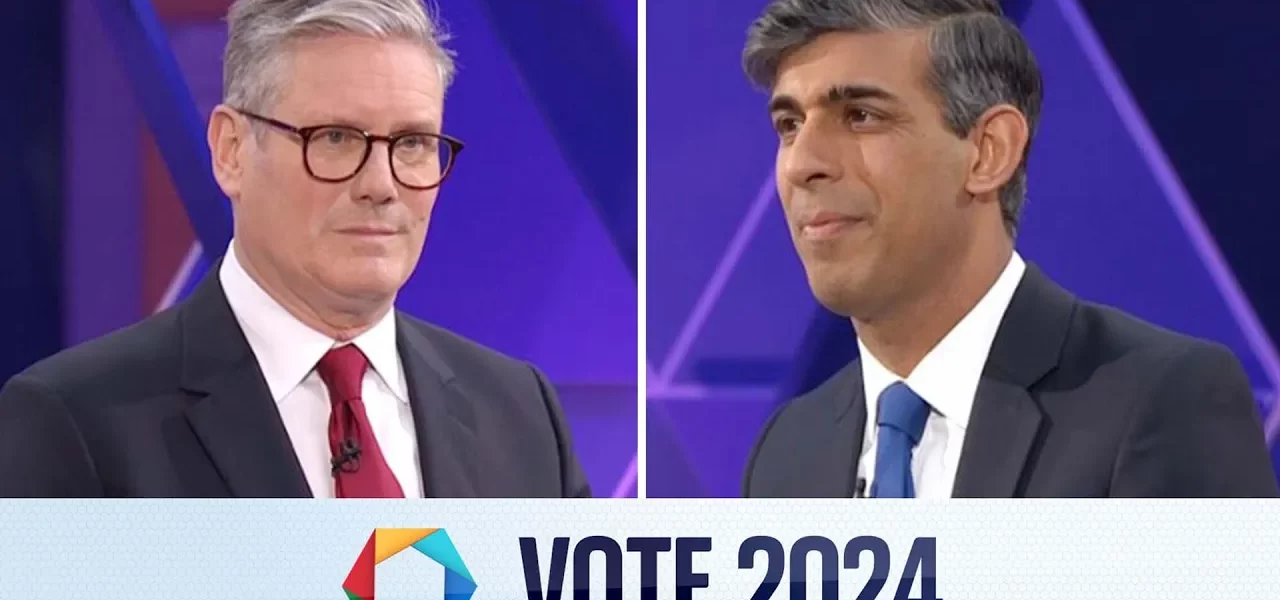The Final Televised Debate: Rishi Sunak vs. Keir Starmer Analysis

In this article, we delve into the final televised debate of the general election campaign between Rishi Sunak and Keir Starmer, exploring their strategies, key moments, and the implications for the upcoming election.
Introduction
The final televised debate of the general election campaign took place at Nottingham Trent University, marking a significant moment for both candidates, Rishi Sunak and Keir Starmer. With the election just days away, this debate served as a crucial platform for each leader to define their positions, challenge their opponent, and connect with voters. This analysis will explore the strategies employed by both candidates, the effectiveness of their arguments, and the potential impact on the election outcome.
Strategic Overview
Rishi Sunak approached the debate with a clear strategy aimed at positioning himself as the strong choice against Keir Starmer. Throughout the debate, he focused on several key issues:
- Tax policies
- Welfare reform
- Women’s rights and protections
- Immigration and border security
Key Moments from the Debate
Rishi Sunak’s Aggressive Tactics
Sunak’s performance was characterized by a sense of urgency and assertiveness. He repeatedly pressed Starmer on his plans regarding welfare and taxation, demanding clarity. For instance, on the topic of protecting women’s spaces, Sunak emphasized the need for changes to the Equality Act, contrasting his stance with Starmer’s position.
Keir Starmer’s Counterstrategy
Starmer, on the other hand, employed a more defensive tactic, attempting to highlight the Conservative government’s failures. He focused on personal anecdotes and his background to connect with voters, aiming to paint Sunak as out of touch with ordinary people. Despite this, observers noted that Starmer often fell short in providing concrete policy details.
Polling and Public Perception
Snap Poll Results
Following the debate, a snap poll revealed that the audience was split evenly, with 50% declaring Sunak the winner and 50% favoring Starmer. This result is significant as it suggests a lack of decisive victory for either candidate, which could reflect on their overall campaign strategies.
Implications of the Polling Data
The evenly split poll indicates that while Sunak’s aggressive tactics may have resonated with some voters, it was not enough to sway a significant portion of the electorate. This split decision raises questions about whether either candidate managed to effectively change the narrative leading into the final days of the campaign.
Key Issues Addressed During the Debate
Welfare Reform
One of the most contentious topics was welfare reform. Sunak proposed stricter measures for individuals who refuse job offers, while Starmer did not endorse such plans, which could indicate a fundamental difference in their approaches to social policy.
Immigration Policies
Immigration was another hot button issue. Sunak claimed that if elected, he would prevent “people smugglers” from exploiting the system, while Starmer sought to question the feasibility of Sunak’s proposals. Their exchanges highlighted the broader ideological divide between the Conservative and Labour parties.
Conclusion
The final debate between Rishi Sunak and Keir Starmer was pivotal in shaping the narrative of the general election campaign. Both candidates showcased their strengths and weaknesses, with Sunak’s aggressive questioning contrasting with Starmer’s attempts to connect with voters on a personal level. As the election approaches, it remains to be seen how this debate will influence voter perceptions and ultimately, the election outcome. For those interested in deeper political analysis and updates, stay tuned as we cover the final days leading up to the election.
“`




